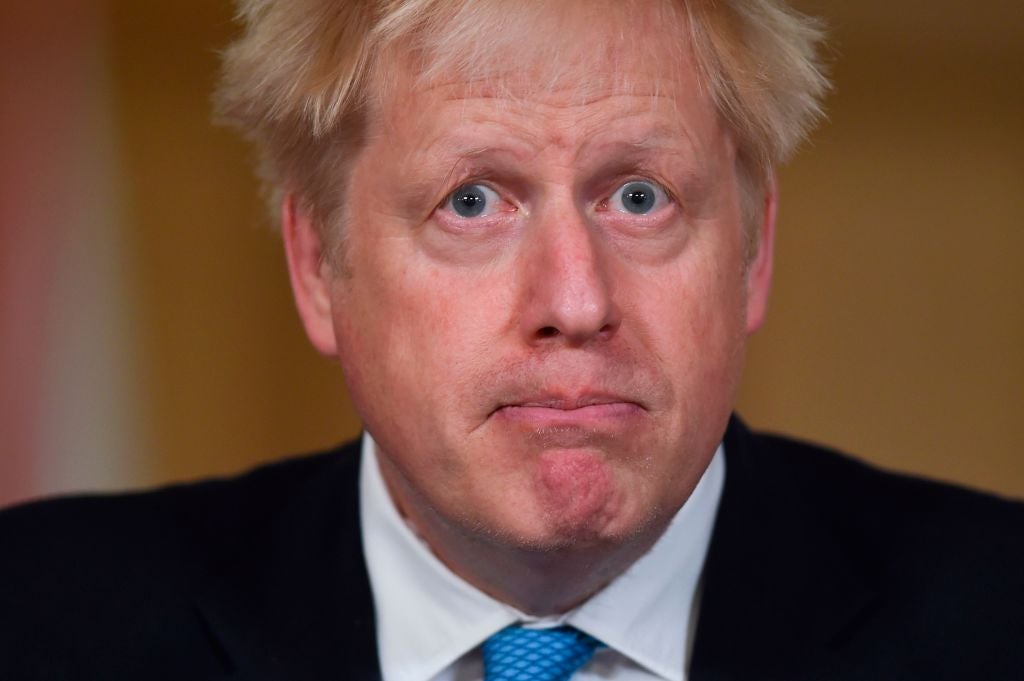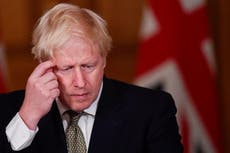Boris Johnson’s no-deal rhetoric is not matched by reality
The latest stand-off with the EU is serious, but that doesn’t mean all hope for a trade agreement is lost, writes Andrew Grice


At first glance, Boris Johnson’s tough “prepare for no deal” message suggested there is little hope for a UK-EU free trade agreement when the transitional period ends on 31 December.
However, as usual with Johnson, the rhetoric is not always matched by the reality. This was a controlled explosion. It followed a similar outburst by Emmanuel Macron, the French president, who played to the domestic gallery at the EU summit by declaring he would not sell out French fishermen by accepting a bad deal on access to UK waters. Fisheries is the biggest roadblock to an agreement.
Downing Street increased the pressure on the EU by declaring bluntly: “The trade talks are over.” But the EU side insisted that Michel Barnier, its lead negotiator, would head to London on Monday for further negotiations, as planned. To which Number 10 replied he should come only if the EU is ready to “fundamentally change” its position.
The stand-off is serious, and the prospects of no deal have risen. But that doesn’t mean all hope for a trade agreement is lost. If the EU makes the right noises over the next two weeks, there is still time – just—to nail down an agreement by the middle of next month. That is the EU’s real deadline, to allow a deal to be approved by the European Parliament.
Johnson stopped short of throwing all of his toys out of the pram. He left his door open for further negotiations, if only slightly. Talks on Northern Ireland, a problem that would be harder to solve in the event of no deal, will continue. The UK will also open talks on “mini deals” to cushion the blow from no deal on issues such as travel, haulage, aviation, social security and nuclear power.
Johnson’s no deal declaration was one of the few cards he had left to play in the stalled negotiations. Some allies had long expected it would take two “explosions” or “blow-ups” by the UK to force the EU to make enough concessions. The first was the UK’s incendiary threat to override parts of the Northern Ireland protocol in last year’s EU withdrawal agreement. It certainly blew up – but in Johnson’s face. The threat to tear up an international treaty played badly around the world, ministers admit privately.
The reaction to his latest explosion in Brussels was more muted than we might have expected. Officials knew it was coming because he had set Thursday as his deadline for an outline agreement. They have got used to his deadlines passing without the sky falling in; he said the summer, then mid-October and then Thursday. That is why the EU summit, which ended on Friday, did not feel unduly pressurised by his latest ultimatum. EU leaders decided not to blink, and called his bluff by calling on the UK to make concessions. That gave Johnson an excuse to play hardball, too. He chose to ignore the more conciliatory noises at the summit; Angela Merkel, the German chancellor, called for both sides to compromise. There was probably a bit of “hard cop, soft cop” choreography in her and Macron’s conflicting remarks.
The French president comes up for re-election in 2022, while Merkel is standing down next year. She does not want to see a messy Brexit. But she will only expend so much capital on avoiding one, and would not want a rift with Macron to leave the EU project less stable as she prepares to depart the stage.
Despite the bust-up, officials in London and Brussels believe a deal is still there to be done. The UK has given ground on its post-Brexit regime for state aid to business. Both sides could present a compromise as a win: the UK can trumpet its freedom, the EU can claim it has stopped the UK undercutting the bloc’s companies. Fisheries is more difficult because the UK will get a bigger share of the fish caught in its waters, so by definition EU coastal states will lose out, even if their reduced catches are phased in over several years.
The war of words has not changed the bottom line. The UK and EU are struggling with a second coronavirus wave that makes a trade deal even more urgent, to avoid a double hit for business and all 28 economies. Johnson’s mounting problems over the pandemic also mean he needs a win. As one Whitehall source put it: “He needs a trade deal because he needs a success. No deal would be a failure.”
Join our commenting forum
Join thought-provoking conversations, follow other Independent readers and see their replies
Comments


Bookmark popover
Removed from bookmarks